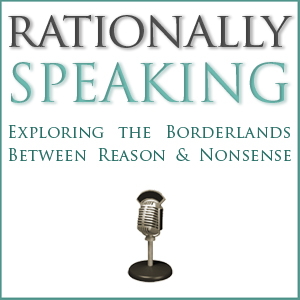Rationally Speaking #241 - Thibault Le Texier on "Debunking the Stanford Prison Experiment"
Rationally Speaking Podcast
New York City Skeptics
4.6 • 787 Ratings
🗓️ 15 October 2019
⏱️ 55 minutes
🧾️ Download transcript
Summary
Transcript
Click on a timestamp to play from that location
| 0:00.0 | Today's episode of Rationally Speaking is sponsored by Givewell. |
| 0:03.5 | Givewell takes a data-driven approach to identifying charities where your donation can make a big impact. |
| 0:09.3 | Givewell spends thousands of hours every year vetting and analyzing nonprofits so that it can produce a list of charity recommendations that are backed by rigorous evidence. |
| 0:17.9 | The list is free and available to everyone online. |
| 0:20.6 | The New York Times has |
| 0:21.3 | referred to Givewell as, quote, the spreadsheet method of giving. Givewell's recommendations are |
| 0:26.2 | for donors who are interested in having a high altruistic return on investment in their giving. |
| 0:30.7 | Its current recommended charities fight malaria, treat intestinal parasites, provide vitamin A supplements, |
| 0:35.9 | and give cash to very poor people. |
| 0:39.6 | Check them out at give well.org. |
| 0:58.3 | Welcome to rationally speaking, the podcast where we explore the borderlands between reason and nonsense. |
| 1:03.1 | I'm your host, Julia Galef, and my guest today is Thiebo L'Texier. |
| 1:09.0 | He is an associate researcher at the University of Nice in France, studying the history of ideas. |
| 1:12.3 | And our topic today is something you've probably heard about. If you've taken an intro to psychology class in the last few decades, or just |
| 1:17.2 | read any media in the last few decades, it's a very famous experiment called the Stanford |
| 1:23.3 | Prison Experiment. And the basic story of the Stanford Prison Experiment goes like this. |
| 1:29.2 | Stanford Professor Philip Zimbardo in 1971 recruited students for this simulation of a prison experience. |
| 1:37.0 | So he randomly assigned half of them to be guards and half of them to be prisoners and ran the |
| 1:41.7 | simulated prison in the basement of the psychology department. |
| 1:44.8 | Very sketchy. |
| 1:46.4 | And very quickly, the students assigned to be guards became abusive and cruel, humiliating the prisoners. |
| 1:54.6 | The prisoners became depressed and demoralized, and the experiment had to be cut short after |
... |
Please login to see the full transcript.
Disclaimer: The podcast and artwork embedded on this page are from New York City Skeptics, and are the property of its owner and not affiliated with or endorsed by Tapesearch.
Generated transcripts are the property of New York City Skeptics and are distributed freely under the Fair Use doctrine. Transcripts generated by Tapesearch are not guaranteed to be accurate.
Copyright © Tapesearch 2025.

